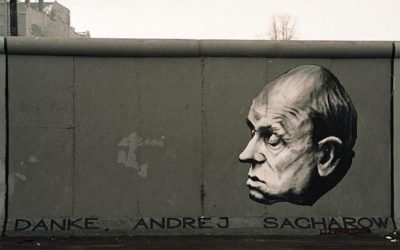A study of the discourse of Russian and Kazakh teachers.
Irina Chudova
Photo: The understanding of academic freedom as an opportunity for development was observed in the discourse of Kazakh teachers. Photo by Mike L on Unsplash
Although the principles and standards of academic freedom sometimes seem universal, people from different cultural backgrounds may have different understandings of the concept. These differences are dependent on the real-life interactions and the normative space of the cultures through which this understanding was obtained.
About the Study
Within the framework of this exploratory study, we compared understandings of academic freedom and the associated expectations of university employees in Kazakhstan and Russia. We conducted a series of interviews with teachers in the humanities and social sciences.
Respondents can be divided into three categories:
- teachers in Russian universities
- teachers in Kazakh universities
- Russian teachers who have come to Kazakhstan within the last 2-3 years
A common understanding of academic freedom facilitates the process of assimilating and integrating newcomers. At the same time, disparities in understandings of academic freedom make it possible to identify points of cross-cultural tension.
How Academic Freedom is Conceptualized
We observed two main conceptions across various understandings of academic freedom:
- freedom from restrictions, including:
- the right to choose research topics
- self-expression
- freedom of speech
- lack of censorship
- lack of oversight of agenda-setting
- university autonomy
- opportunities for development, including:
- competitive standards
- increased salaries and qualifications
- university support for teachers
- opportunities for academic mobility
- up-to-date equipment
- unique curricula
The first conception was typical of the discourse of Russian teachers, especially those who had recently arrived in Kazakhstan.
Meanwhile, the understanding of academic freedom as an opportunity for development was observed in the discourse of Kazakh teachers.
Freedom from Restriction
The first kind of discourse—academic freedom as freedom from restriction—implies different aspects of this freedom. (The quotes below are excerpts from interviews with teachers.)
А) Academic freedom in regard to research
“To me, it’s the opportunity to pursue research topics that interest you, regardless of any religious, political, or other social limitations that there may be.” (Teacher who came to Kazakhstan)
“Not only the opportunity to choose and study a particular subject, but also the opportunity to express it, to demonstrate the results of your work, your research, the opportunity to be included in the academic community. The opportunity to publish in any journal, any publication, any community of interest” (Teacher in Russia)
B) Academic freedom in regard to instruction
“It’s more about the choice of topics, subjects, what we focus on, what we talk about in lectures or discuss during seminars. …in theory, this choice should proceed from the logical development of knowledge” (Teacher in Russia)
“The opportunity for free expression in the lecture hall and free exchange of opinions with fellow lecturers…free expression in the public space, while mentioning that you are associated with your university” (Teacher who came to Kazakhstan)
C) Academic freedom of students
“Freedom precisely in the sense that there is some kind of normative boundary, that they [the students – I.C.] expect not subjective political views, but academic knowledge” (Teacher who came to Kazakhstan)
D) Academic freedom as the independence of the university from the state
“The ideal and typical situation was when scientists would get together and decide what they would study next…in sociology, right now the topics are—I don’t know, gender, big data and all that—these are the key, important topics. To hell with this, I don’t know, presidential program, year of the family and so on” (Teacher in Russia)
But there can also be found the opposite stance, expressing the need for state intervention in academic affairs:
“Academic freedom is necessary, naturally, within reasonable limits, and at the same time, it probably should…There should probably be some government oversight. I don’t know to what extent, but in this regard, without government oversight, it will probably also get a little complicated” (Teacher from Kazakhstan)
E) Academic freedom as a complex of freedoms
“Academic freedom is…the right to express one’s point of view, freedom of speech, above all else. Freedom of speech, freedom of expression, freedom of choice of topics, above all else” (Teacher who came to Kazakhstan)
“To be not afraid, to be free from fear, to conduct science, to teach” (Teacher from Kazakhstan)
Opportunity for Development
The second kind of discourse—academic freedom as an opportunity for development—emphasizes other aspects that, in many ways, are opposite of the previous understanding:
A) Academic freedom as a path toward international inclusion, creating new opportunities for participants in the educational process
“For me, academic freedom is the search for new paths, it is the rationalization of labor, from the university’s perspective, it is all activities that are aimed at improving quality, at actions that should lead to output from professional personnel” (Teacher from Kazakhstan)
“We have switched to the Bologna Convention, that is, the Anglo-Saxon system…There are, of course, big advantages. Academic mobility, academic freedom for students, educational programs, students travel…All classrooms are equipped with modern technology. Greater academic freedom” (Teacher from Kazakhstan)
B) Academic freedom as an internal relaxation of restrictions in higher education and improvement of working conditions
“We have launched this project so that there is a certain academic freedom in our Kazakh universities…I felt this freedom at another moment. I felt it from the fact that the schedule has become somewhat flexible. Before, it was not very flexible. I felt it in response to that change, to the renewal of the university’s material resources” (Teacher from Kazakhstan)
“Each student has an individually tailored course program…There are no two identical course programs at the university” (Teacher from Kazakhstan)
“What our state formally understands by academic freedom, from my perspective, is not quite the same as…In Kazakhstan, it seems to me, we need to understand…we understand academic freedom as pertaining to the university’s actions or activities—that is, as the framework within which our universities in Kazakhstan can freely function and so on. But as far as the positionality of a scientist as a scientist, it seems the framework in Kazakhstan is eroded” (Teacher from Kazakhstan)
Comparison of Teachers’ Discourses
The data we obtained allow us to schematically compare the content of the two observed lines of discourse:
- Freedom from restrictions and pressure vs. Freedom as an opportunity for development
- Types of restrictions vs. Signs of restrictions
- Autonomy from the state vs. Expectation of support from the state
- Fears vs. Hopes
- “Positionality”* of a scientist vs. Trends in the way a university functions
* Evidently understood as subjectivity, or the ability to maintain one’s integrity while still developing professionally.
* * *
Within this context of contrasting the differences between the two discourses, we can talk about different perceptions of academic freedom:
- In the first discourse, freedom is presented as an unconditional value
- in the second, academic freedom is characterized as a thing in motion, a process
“Well, and probably the most important thing, surely, is academic freedom, the opportunity to simply choose what interests you, not something imposed upon you, but an independent, free choice…I would probably agree that this is a key value.” (Teacher in Russia)
“I think, well, there was a reason that it was invented and is being implemented, and that in Europe it is a natural process, there is a constant exchange of experience. This is necessary, because in science you must be open to the world.” (Teacher from Kazakhstan)





0 Comments